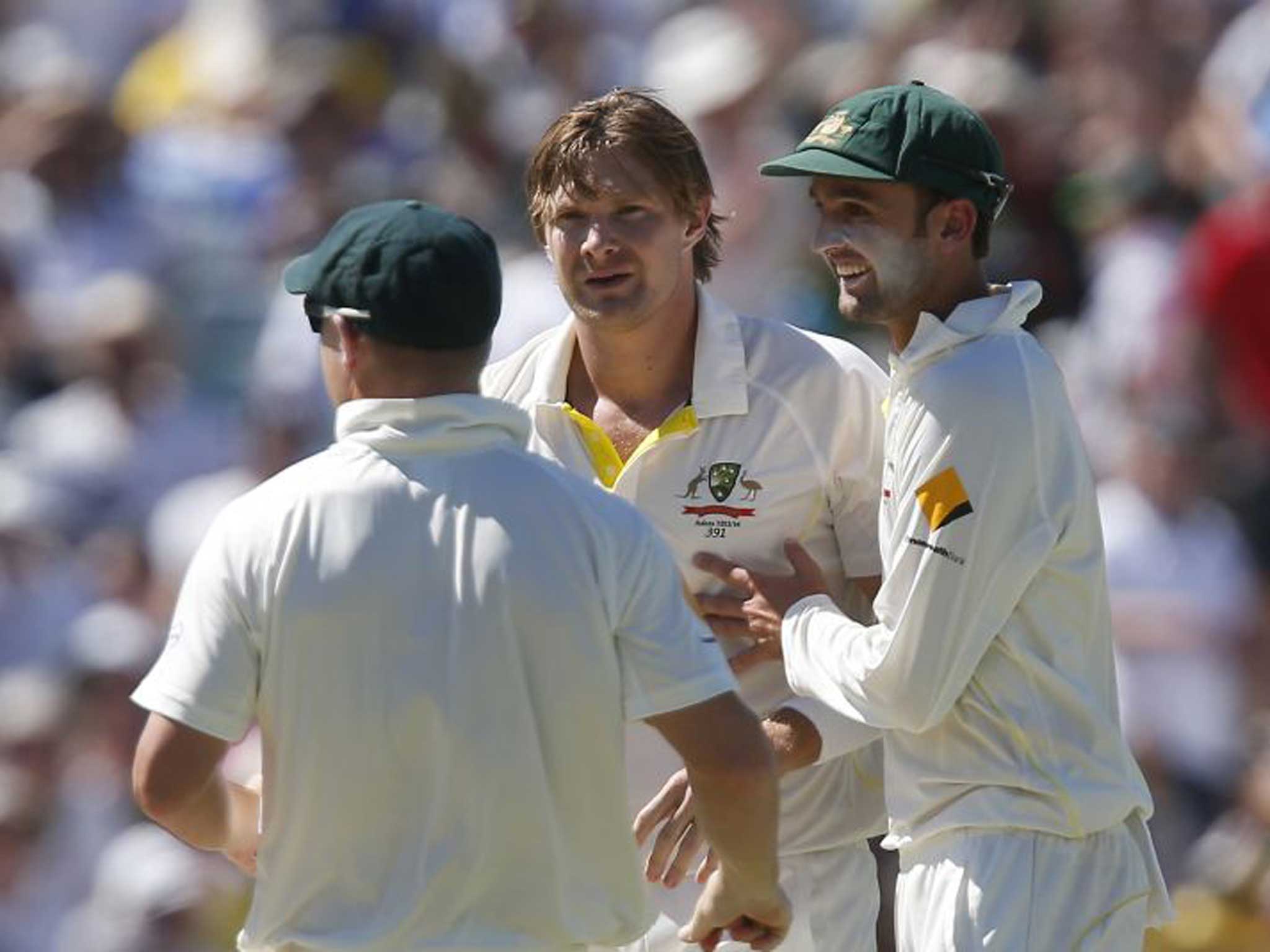Ashes 2013-14: Australia’s box-office stars owe much to the supporting cast

Anyone with a passing interest in cinema would know which production had been named Best Picture in a given year. How many, though, could recall the Best Assistant Director, or which film had the best visual effects?
Australia’s success in this series has owed much to their leading actor, Mitchell Johnson, whose fast bowling yielded 17 wickets in the first two Tests. Johnson’s work earned him the man-of-the-match award at both Brisbane and Adelaide, yet as effective as he was, the home side’s backstage boys have done their share of damage.
Take the case of Shane Watson. His form with the bat has been poor, especially for a top-order player, and his average for the series is just 19.4. Although he has picked up only two wickets, he is a vital member of this attack, so rarely does the 32-year-old allow a batsman to relax.
In the first Test at the Gabba, Watson was barely fit to bowl because of a hamstring problem, yet he still managed a pair of overs in the second innings without conceding a run. At the Adelaide Oval, Watson was genuinely influential as a bowler.
His removal of Michael Carberry, who had made 60, started an England collapse that saw the tourists lose four wickets for six runs. Johnson wrought the destruction and finished with seven for 40, but it was Watson’s wicket that gave him the opportunity to do so.
Furthermore, all three of Watson’s overs were maidens, leaving him with figures of one for nought at the end of the innings. Only in the second innings, when the game was up, did England manage to score off Watson and, even then, the figures were six overs for six runs, comprising three more maidens.
It was a similar story here at the Waca. England had just lost Carberry to Ryan Harris, and Alastair Cook and Joe Root were seeking to rebuild. Finding swing from the Prindiville Stand End, Watson tempted Root to drive.
Root was convinced he had not hit the ball; umpire Marais Erasmus did not agree, and when Root reviewed, third umpire Tony Hill saw no reason to overturn the decision. The England batsman was aghast to be given out, but once more, Watson had made a decisive impact.
How England could use a man like Watson. His presence ensures that, when Australia’s captain Michael Clarke wishes to rest his quick bowlers, there is little risk of him losing control of the game.
Ben Stokes and Tim Bresnan were supposed to fulfil that role for Cook’s team. Stokes is playing only his second Test match and must be cut some slack, yet after Stuart Broad had produced a fierce spell of short-pitched bowling, Stokes was not able to maintain the pressure on Brad Haddin and Steve Smith, who built the stand of 124 that might decide this Test.
Similarly, Bresnan was playing his first Test match for England since recovering from a stress fracture of the back, and he proved as ineffective, taking just one wicket – that of No 11 Nathan Lyon – and conceding 81 runs from his 23.3 overs.
Haddin had a considerable amount of good luck yesterday, just as he had in scoring a century in the first innings at Adelaide. Yet had Stokes or Bresnan been able to tie him down, the results might have been different.
Can you imagine an England batsman hitting Watson back over his head for six, as Haddin had done to Bresnan on the opening day?
When the film is made of this series, Johnson and Clarke will be the main subject of the plot. However, the tale of Watson’s efforts must not be left on the cutting-room floor.
Subscribe to Independent Premium to bookmark this article
Want to bookmark your favourite articles and stories to read or reference later? Start your Independent Premium subscription today.

Join our commenting forum
Join thought-provoking conversations, follow other Independent readers and see their replies